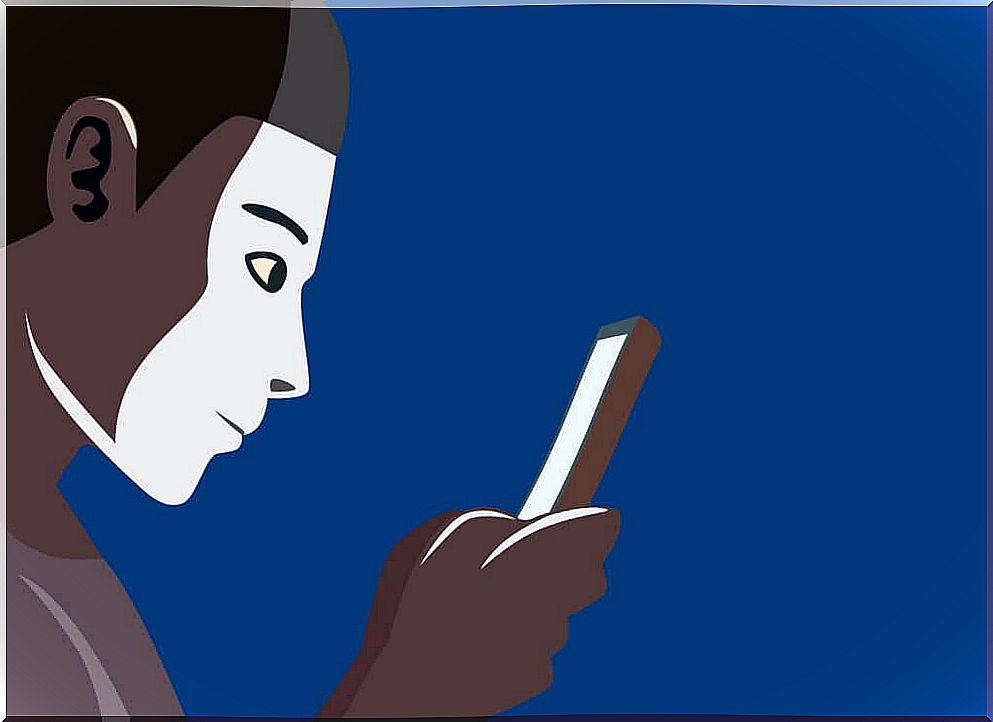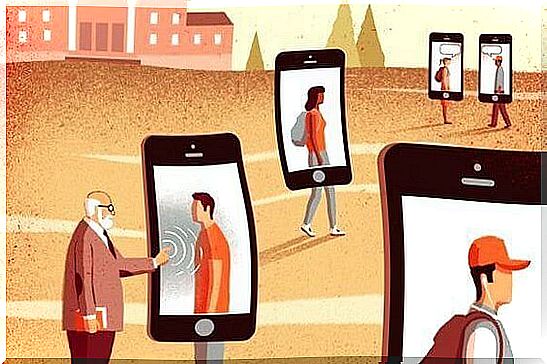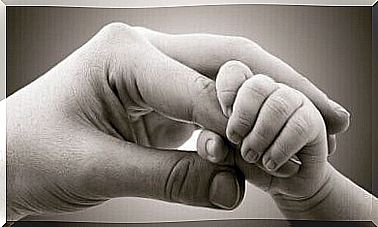Lies On Social Networks

Lies on social media, just like in other areas of our life, are invading us all the time. In fact, several branches of science explain the effect of lies in everyday communication.
Sociologists, anthropologists, psychologists, physicists and mathematicians have analyzed, from their point of view, the function of lies in these environments and the way they affect us, in addition to studying the parts of the brain that are involved in the act of lie. Let’s explore this idea further.
Mathematics and Lies on Social Media
A study led by Rafael A. Barrio, of the INAM Institute of Physics, found that lies on social media happen in the usual way, as in any type of human communication.
This is an international research which was carried out through the application of a dynamic model of opinion in a huge telephone network which includes the European Community. It aims to examine the role of lies on social media.

The analysis of interactions by couples has developed through the use of an organized system of calls to seven million telephones. Thus, according to the authors: “in this work, we focus on the impact that lies have on the coherence and structure of social networks”.
The study emphasizes that lies are a substantial element in maintaining the virtuality of relationships between people. “Even though we were taught in childhood that not telling the truth is a bad thing and that we should act honestly, we learn to lie, sometimes in sophisticated ways. We never stop doing it, in any type of human society. It’s something other primates like chimpanzees do too, ”said Barrio.
Types of network lies
In their article Effects os Deception in Social Networks, the authors of this study inform us of the existence of two types of lies on social networks:
- White or prosocial lies
- Black or anti-social lies
White lies have a positive and innocent connotation, while black lies have a harmful and offensive connotation. The former are normally issued for a good reason and do not adversely affect the individual. On the other hand, the seconds are pronounced with a perverse aim in order to harm the receiver and to be beneficial to the transmitter.
Among the findings, published in the journal Proceedings of the Royal Society B., the scientists found that:
- Lies on social networks, white or prosocial, balance, unite society, offer a diversity of opinions to the virtual collective and help to maintain broad social relations
- On the other hand, black or anti-social lies – selfish and useful to the one who emits them – fracture the links, promote mistrust and are harmful because they destroy the network by breaking the links. People feel cheated
What leads us to lie on social media?
The great invention of primates is sociability and, with it, deception. Our brain can handle more peer relationships with lies. If a person were honest all the time, their connections would be less. It’s like a technique we use to connect with more people at the same time.
The more time passes, the more the network conforms to its structure of balanced communities. People do not lie less but more. Although it is true that the number of anti-social lies is tending to disappear, while prosocial lies are growing dramatically.
This effect is quantitatively consistent with studies in schools. The more children grow up, the more they tell lies. In the little ones there are many antisocial lies that disappear as they get older. But, at the same time, prosocial lies are increasing.

I lie but I do not isolate myself
Completely honest people run the risk of being isolated because those who only tell the truth can hurt the most susceptible. These people are characterized by a certain withdrawal and a fairly low number of friends. They are in fact used to saying what they think, without fearing the opinion of others about this comment which, in general, is frowned upon or inappropriate for many. Therefore, being honest is not always socially ideal. However, these people receive respect and trust from others. Honesty therefore remains a virtue.
We cannot say that men are liars. Rather, let’s say that we are using the lie at a specific time, depending on the circumstances. The reason we lie is because we are immersed in a society. We are constantly interacting with groups of people and we want to get the most out of them socially and emotionally.
There are a lot of good things behind this new form of human communication, and some that are not so good. The worst thing about social media is that we become so disconnected from ourselves that our story can be told in false moments, not real experiences. However, these experiences are what gives value to our memories.









